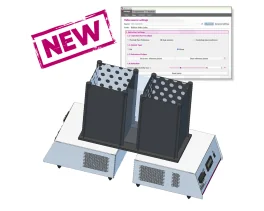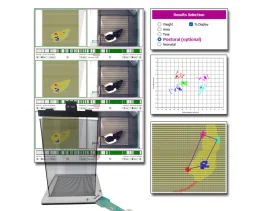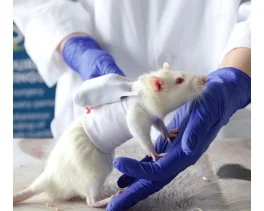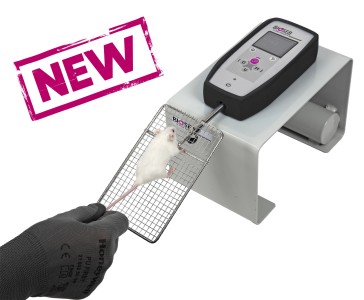Authors
Y Kishimoto, J Johnson, W Fang, et al
Lab
Laboratory of Neurosciences, National Institute on Aging Intramural Research Program, Baltimore, MD, USA
Journal
Neurobiology of Aging
Abstract
Dopaminergic neuronal cell loss in the substantia nigra is responsible for the motor symptoms that are the clinical hallmark of ParkinsonÕs disease (PD). As of yet there are no treatments that slow or prevent the degeneration of dopaminergic neurons in PD patients. Here we tested the hypothesis that dopaminergic neurons can be protected by treatment with the mitochondrial uncoupling agent 2,4-dinitrophenol (DNP) and the novel DNP prodrug MP201. We found that mice treated with low doses of DNP and MP201 were protected against motor dysfunction and dopamine neuron loss in the 6-hydroxydopamine PD model, with MP201 being more efficacious than DNP. Amelioration of motor deficits and dopamine neuron loss by MP201 treatment was associated with reductions in microglial and astrocyte activation and neuroinflammation. These preclinical findings suggest the potential application of mitochondrial uncoupling agents such as MP201 as disease-modifying therapies for PD.
BIOSEB Instruments Used
Grip strength test (BIO-GS3)
Source :
https://www.sciencedirect.com/science/article/pii/S019745801930332X#!

 Douleur - Allodynie/Hyperalgésie Thermique
Douleur - Allodynie/Hyperalgésie Thermique Douleur - Spontanée - Déficit de Posture
Douleur - Spontanée - Déficit de Posture Douleur - Allodynie/Hyperalgésie Mécanique
Douleur - Allodynie/Hyperalgésie Mécanique Apprentissage/Mémoire - Attention - Addiction
Apprentissage/Mémoire - Attention - Addiction Physiologie & Recherche Respiratoire
Physiologie & Recherche Respiratoire




































 Douleur
Douleur Système Nerveux Central (SNC)
Système Nerveux Central (SNC)  Neurodégénérescence
Neurodégénérescence Système sensoriel
Système sensoriel Système moteur
Système moteur Troubles de l'humeur
Troubles de l'humeur Autres pathologies
Autres pathologies Système musculaire
Système musculaire Articulations
Articulations Métabolisme
Métabolisme Thématiques transversales
Thématiques transversales Congrès & Meetings
Congrès & Meetings 